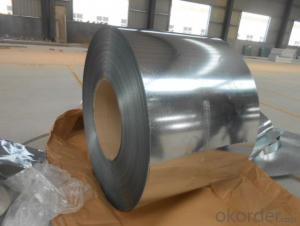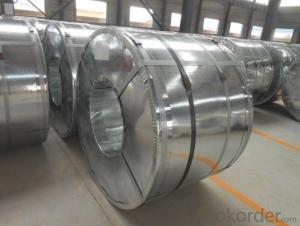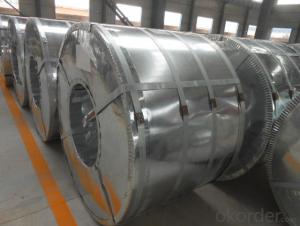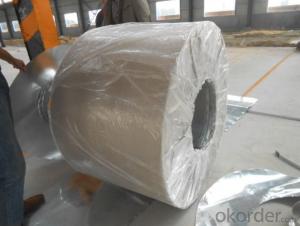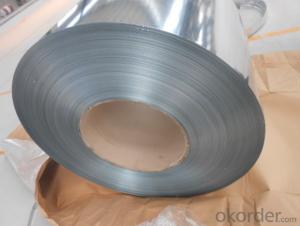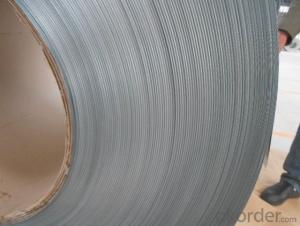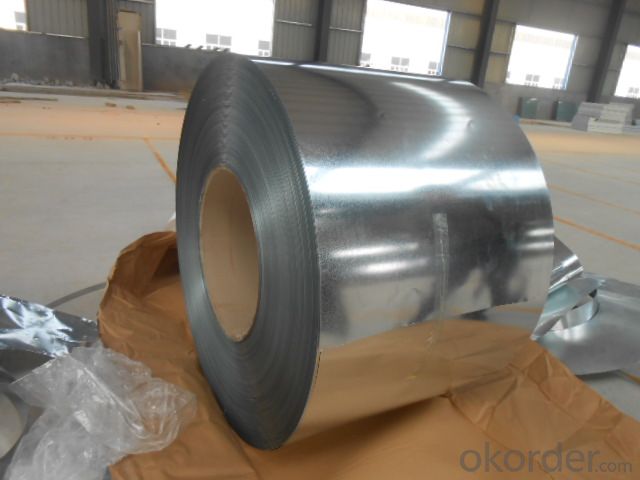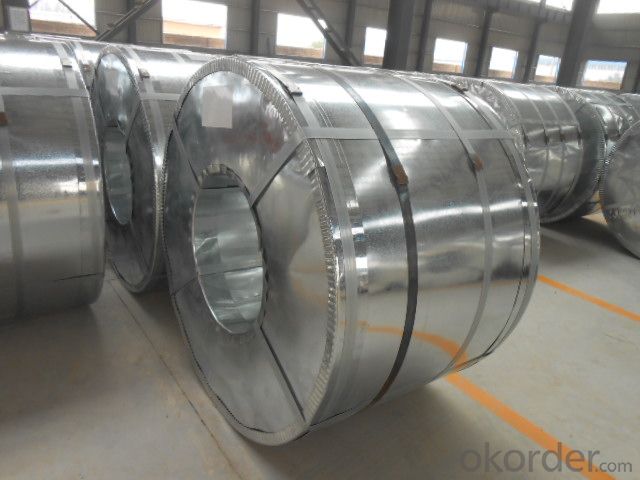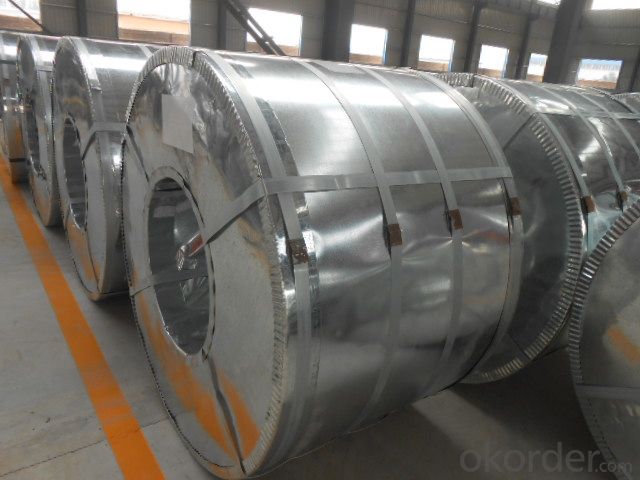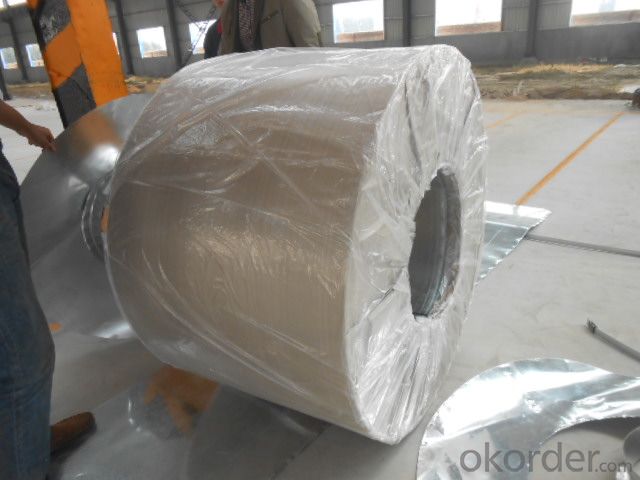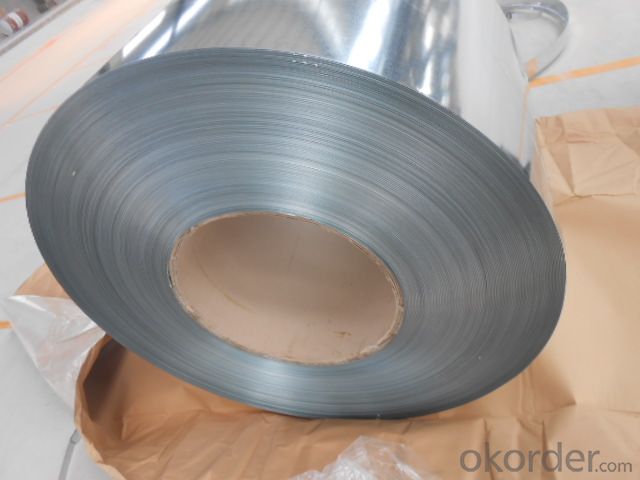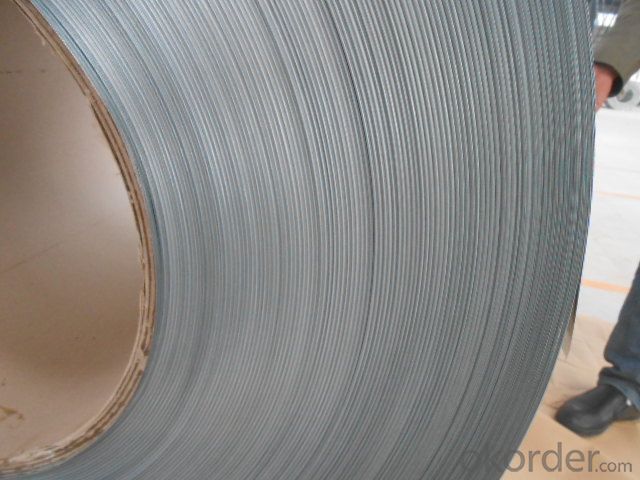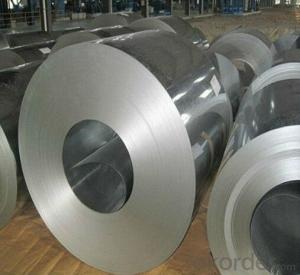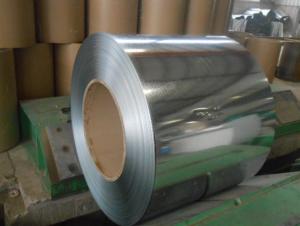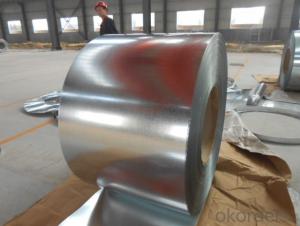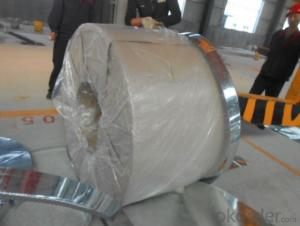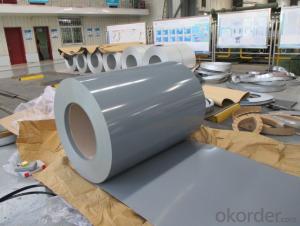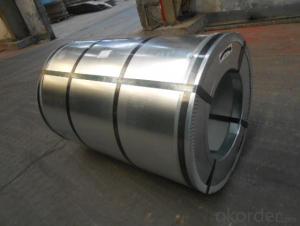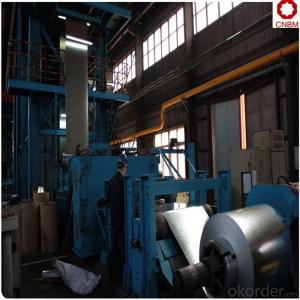SGCH 0.17*762mm Hot Dip Galvanized Steel Coil
- Loading Port:
- Tianjin
- Payment Terms:
- TT OR LC
- Min Order Qty:
- 10 m.t.
- Supply Capability:
- 100000 m.t./month
OKorder Service Pledge
OKorder Financial Service
You Might Also Like
Galvanized steel sheet coil
Standard: JIS G3302 / GB/T 251B / ASTM A653M/ enterprise standard
Grade: SGCC (DX51D+Z) SGCH etc.
Surface treatment: chromated, oiled, bright finished , fingerprint resistance.
1.Galvanized steel coil
Thickness: 0.13mm-2.0mm
Width: 600mm-1250mm
Zinc coating:40g-275g
Coil weight: as per customers' requests
ID: 508mm
Applications: general use, for roof, the out side of buildings, structure, tile row
plate, deep drawing and deep drawn
Package: fancy package or as per customers' requests
2.Corrugated roofing sheet.
Thickness:0.13mm-1.0mm
Width:650mm-1100mm
Material:CGCC,SGCH,SPCC,Q195,ETC
Packages:mill standard packings
We have more than 20. A large variety of specifications and colors are available.
- Q: What is the AISI grade of mild steel that is the most magnetic? What magnetic steels are the cheapest and easiest to buy?
- Iron
- Q: In the game RuneScape, the concept of the fictitious metal, Rune has intrigued me. On an equal area AND weight basis (with a possible 10 lb exception) what metal is 256% stronger than steel?
- aluminum
- Q: My company want to welding stainless steel, do not know to use what welding machine?
- Stainless steel is a fascinating metal to weld. Welding stainless can be difficult if you don't know what you are doing. It reacts to excessive heat by warping and distorting once it cools. Everything shows up in stainless. If you weld with too much heat you can see it by the heat marks left in the metal along with any distortion. It also scratches very easily so you must take care when welding on a metal table. Stainless steels can be welded using several different procedures such as shielded metal arc welding, gas tungsten arc welding, and gas metal arc welding but stainless steel welding wires have been developed for welding stainless steels.
- Q: How are steel coils used in the production of roofing and siding?
- Steel coils are an essential component in the production of roofing and siding materials. These coils, made from high-quality steel, undergo various processes to transform them into the final products used for roofing and siding purposes. Firstly, the steel coils are uncoiled and flattened to obtain a flat sheet of steel. This sheet is then cleaned to remove any impurities or contaminants. The cleaning process involves treating the surface of the steel with chemicals and rinsing it thoroughly to ensure a clean and smooth surface. Next, the steel sheet is coated with a protective layer to enhance its durability and resistance to corrosion. This coating can be done through various methods such as hot-dip galvanizing, electro-galvanizing, or applying a layer of metallic or organic coating. The specific coating method depends on the desired properties and aesthetic requirements of the roofing or siding material. After the coating process, the steel sheet is formed into the desired shape and profile. For roofing applications, the steel sheet is typically corrugated or formed into interlocking panels. This allows for easy installation and ensures a secure and weatherproof roofing system. Similarly, for siding applications, the steel sheet can be formed into different profiles such as horizontal or vertical panels, shingles, or shakes. Once the steel sheet is formed, it may undergo additional treatments to enhance its performance. This can include applying a protective layer of paint or other finishes to improve its appearance and resistance to fading, chipping, or scratching. The steel coils can also be embossed or stamped with patterns or textures to provide aesthetic appeal. Overall, steel coils play a crucial role in the production of roofing and siding materials. They provide strength, durability, and weather resistance, making them an ideal choice for protecting buildings from the elements. Additionally, steel coils offer versatility in terms of shape, profile, and finish, allowing for a wide range of design options for roofing and siding applications.
- Q: How are steel coils used in the manufacturing of industrial machinery?
- Steel coils are used in the manufacturing of industrial machinery as they serve as the primary raw material for various components such as frames, casings, gears, and structural supports. These coils are typically cut, shaped, and welded to create the desired machine parts, ensuring strength, durability, and precision in the final product.
- Q: What is the role of steel coils in the manufacturing of bridges?
- Steel coils play a crucial role in the manufacturing of bridges as they are used as the primary material for constructing the structural components of the bridge, such as beams, columns, and girders. These coils are manufactured by rolling steel into flat strips, which are then wound into large coils. The high strength and durability of steel make it an ideal choice for bridge construction, as it can withstand heavy loads, extreme weather conditions, and provide long-lasting support. The coils are processed further to fabricate the required bridge components, ensuring the structural integrity and stability of the bridge.
- Q: I have a need to connect various stainless steel tubes and fitting together and was wondering how to do it. I know a TIG welder is an option but have heard rumors that there is a way to solder it in much the same way you affix copper pipe. Perhaps with higher heat and different flux. I need step by step and maybe suppliers of the materials. Thanks in advance and please I do not need the call a plumber answers as I've gotten in the past
- ss has to be either welded or brazed you can [solder ] it but it has to be a silver solder, and will not have any strength
- Q: bullets are normally made out of lead...are there bullets that are completely steel?? (not plated)
- I personally know of no steel bullets. In order to be soft enough to engage the rifling in the barrel, it would have to have a jacket at least the thickness of the groove depth. Separate loading(those which a projectile is loaded followed with various sized powder charges) howitzer projectiles are cast steel with copper driving bands set in grooves to engage the rifling.
- Q: earlier name of jsw steel ltd. may be jindal iron steel ltd.
- JSW Steel Ltd - Profile Office Address 5 A, Jindal Mansion, Dr A G Deshmukh Marg, Mumbai Maharastra 400026 Phone 022-23513000 Business Summary JSW Steel Limited Formerly known as Jindal Vijayanagar Steel Limited. The Company's principal activity is to manufacture hot rolled steel coils in India using the revolutionary Corex technology. In addition, the Company also manufactures steel plates and sheets. It manufactures steel using oxygen based iron and steel through continuous casting and hot rolling. Executive Team Executive Name Designation Savitri Devi Jindal Sajjan Jindal Dr. B N Singh Chairperson Additional Director Vice Chairman Managing Director Joint Managing Director
- Q: What are the different types of steel coil surface treatment methods?
- Various industries commonly use several different types of surface treatment methods for steel coils. These methods aim to enhance the performance, durability, and appearance of the coils. Some commonly employed treatment methods for steel coils include: 1. Hot-dip galvanizing: Immersing the steel coil in molten zinc provides excellent corrosion resistance and prevents rusting. 2. Electro-galvanizing: Electroplating a thin layer of zinc onto the steel coil surface offers similar corrosion protection to hot-dip galvanizing but with a thinner coating. 3. Cold-rolled steel coil: Passing the steel coil through rollers at room temperature creates a smooth and polished surface finish, suitable for high-quality appearance applications. 4. Pre-painted steel coil: Also known as color-coated steel coil, this method involves applying a layer of paint or coating onto the steel surface, providing an attractive appearance and additional corrosion protection. 5. Phosphating: Applying a phosphate coating onto the steel surface improves the adhesion of subsequent coatings, such as paint or powder coating, and offers corrosion resistance. 6. Chromate conversion coating: This method entails applying a conversion coating, typically using chromium compounds, onto the steel coil surface to enhance paint adhesion and corrosion resistance. 7. Passivation: Chemical treatment is used to remove iron oxide and other contaminants from the steel surface, thereby improving the corrosion resistance of the steel coil. 8. Oiling: A thin layer of oil is applied onto the steel coil surface, commonly used for preventing corrosion during storage and transportation. These treatment methods are commonly employed for steel coil surfaces. The choice of method depends on specific requirements like corrosion resistance, appearance, and performance.
Send your message to us
SGCH 0.17*762mm Hot Dip Galvanized Steel Coil
- Loading Port:
- Tianjin
- Payment Terms:
- TT OR LC
- Min Order Qty:
- 10 m.t.
- Supply Capability:
- 100000 m.t./month
OKorder Service Pledge
OKorder Financial Service
Similar products
Hot products
Hot Searches
Related keywords
